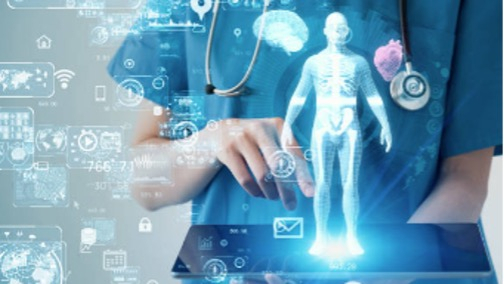
Vinicius Carvalho, a skilled software engineer and architect, emphasizes that the Internet of Things (IoT) extends far beyond smart homes and self-driving cars; it's a key catalyst for monumental changes in healthcare. Having a broad professional portfolio that includes contributing to varied sectors, from online dating services to healthcare, Vinicius provides insightful perspectives from firsthand experience of the dramatic shifts in the field.
Carvalho further elaborates, "The sheer volume of data produced by IoT devices, specifically in healthcare, is both overwhelming and insightful. It's akin to a deep-sea explorer uncovering vast, uncharted territories of human health."
What is IoT in Healthcare?
The IoT is a system of interrelated and wireless digital devices that can collect, send, and store data over a network, circumventing the need for human-to-human or human-to-computer interaction. It encompasses everything connected to the internet, from smartphones to everyday objects embedded with smart sensors and software.
In the healthcare context, this technology's potential is evident in the proliferation of applications such as telehealth services, remote patient monitoring, and the use of wearable devices for health data collection.
"Imagine a world where a patient's health data, from birth, is securely stored and analyzed. Patterns are identified, risks assessed, and preventative measures suggested, all in real-time. This isn't a far-off sci-fi scenario, it's happening now, and the IoT is at the heart of it," Carvalho affirms.
According to the International Data Corporation (IDC), the healthcare sector is projected to spend over $140 billion on IoT technology by the end of 2023. With an expected 27 billion IoT devices worldwide, a staggering 15% are predicted to be in healthcare.
Carvalho, who contributed to a highly scalable and distributed medical imaging solution serving over 300 healthcare organizations worldwide, remarks, "Think of it like a continuous, real-time health check. Devices monitor heart rate, blood pressure, glucose levels - these small pieces of data, when assembled, offer a detailed and precise health snapshot, often revealing anomalies earlier than traditional methods ever could."
According to Carvalho, these are just some of the benefits of IoT in healthcare:
Monitoring and Predicting Health Issues: IoT devices can enable constant monitoring of patients, which is critical for those suffering from chronic diseases or requiring ongoing care. These devices can predict health issues in advance by analyzing patterns in health data, potentially preventing health crises and hospitalizations.
In-Hospital Applications: IoT has been applied in several hospital scenarios, like "smart beds" that can detect occupancy and adjust for optimal patient comfort. Such applications can reduce manual work for healthcare providers, thus improving care delivery efficiency.
Support in Pandemic Scenarios: The significance of IoT in healthcare became particularly noticeable in the wake of the COVID-19 pandemic. IoT technology played a crucial role in monitoring and managing the disease, demonstrating its potential for managing future health crises.
Building a Secure Foundation
The deployment of IoT in healthcare does come with challenges. Concerns relating to privacy, security, data storage, and control and ownership are significant. Furthermore, implementing IoT-based healthcare systems requires careful strategic planning, transparent policies, and robust cybersecurity measures. This is backed by the Cybersecurity Ventures forecast that healthcare cybercrime will cost the global economy over $65 billion by 2023.
Carvalho concurs with this concern and emphasizes the need for robust security measures.
"Data security isn't an optional add-on. It must be part and parcel of the infrastructure from the get-go," he says.
Having led a team at a company specializing in providing software as a service (SaaS) and cloud-based remote work tools, where he worked on a communication product with an analytics component that gathered information via different processes and databases,
Carvalho is familiar with the challenges of securing data in an interconnected world.
Despite the hurdles, Carvalho remains optimistic about the transformative potential of the IoT in healthcare.
"I see technology as a great equalizer. In healthcare, the IoT has the potential to level the playing field, offering high-quality care to those who might not have had access to it. There are challenges, certainly. But the opportunities far outweigh the risks," He concludes.
The healthcare industry will have to continue adapting to rising technologies. It would be sooner rather than later that professionals in the field will have to strive to keep up with the constant changes brought about by changing times and digital transformation. With key professionals like Vinicius Carvalho at the helm of shaping its future trajectory, the sector will undoubtedly keep pace.








